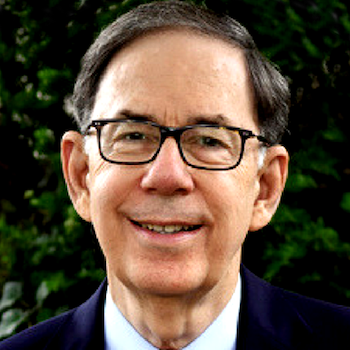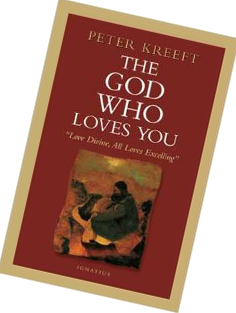Back to series

Recommended Reading:

Loving God and Neighbor
Click here to open a Print - Friendly PDF
| Whether we realize it or not, we all have certain priorities in life. Some things are more important to us than others. And those that are the most important shape our lives in significant ways. This is as true for the day laborer as it is for the corporate executive. Have you ever examined your life with a view toward understanding your priorities? For better or worse, our priorities are slowly turning us into a certain kind of person and shaping our destinies.
Starting our exploration of priorities with what God says they should be can provide a framework or perspective from which to discern what our priorities really are. Fortunately the Bible is quite clear about this. Jesus says the first and greatest of God’s commandments is to “love the Lord your God with all your heart and with all your soul and with all your mind and with all your strength” (Mark 12:30, italics added).1 The passage from the Old Testament (Deut. 6:4–5) is a foundational command for our relationship with God. The repetition of all and its application to the various aspects of our nature means that we are to love God with all that we are, with every part of our being: intellect, emotion, will, and desire. We are to become God-centered people; He is to be first in our lives, above everyone and everything, without exception. From this all other priorities will find their place. Loving GodLoving God wholeheartedly lies at the heart of spiritual health, and the more we love Him the healthier we are. Echoing the spiritual giants throughout history, C.S. Lewis says, “Every Christian would agree that a man’s spiritual health is exactly proportional to his love for God.”2 Do you agree? Is wholehearted love for God the highest priority in your life? To rightly answer this question, we must begin with a basic understanding of what the Bible means by the word God. This is necessary because our view of God has such profound personal implications. As A.W. Tozer said, “What comes into our minds when we think about God is the most important thing about us.”3 Discerning the biblical view of God is also important because many Americans who say they believe in God use the word to mean something other than the God of the Bible. And even those who do mean the God of the Bible sometimes have distorted ideas and images of Him that hinder their ability to love Him wholeheartedly. In the Bible, the word God describes an invisible and eternal spiritual being who is immense and infinitely powerful, wise, knowing, and good. He is holy, morally pure, loving, gracious, merciful, patient, and forgiving. He created and sustains all things, seen and unseen, and will one day judge all mankind. Much more could be said, but this brief description helps us distinguish the God of the Bible from other gods. Is this what comes into your mind when you think about God? I hope so, because this is the God whom Jesus says we are to love wholeheartedly.
This propositional knowledge about God is a necessary and indispensable foundation for knowing Him, but it is not sufficient by itself. With the help of the Holy Spirit, we must go on to meet God personally and know Him in a relational way. This happens as we come to believe what we have learned about Him and entrust ourselves to Him. God has given the clearest revelation of Himself to us in Jesus, who said, “Whoever has seen me has seen the Father” (John 14:9). Paul described Jesus as “the image of the invisible God” (Col. 1:15). We come to know the invisible God through His Son, Jesus. More specifically, we must respond to Jesus’ call to “repent and believe in the gospel” (Mark 1:15). As we respond to His call with faith in Him personally and His atoning sacrifice on the cross, we come to know God and Christ in a saving and relational way. Once we come to know God, we experience a fundamental inner change that enables and inspires us to love God. This profound change is produced by the Holy Spirit, who comes to dwell within us and produces a new life (John 3:5–8) and a growing love for God and others (Rom. 5:5). Whereas we were once dead to God, we are now alive to Him. Whereas we were formerly God’s enemy, now we are His friend. This radical change gives us a new outlook along with new desires and life-transforming power. However, this spiritual “new birth” is just the beginning. After our conversion, we are in a state of infancy; we need proper care and feeding to grow in our new relationship with God. The spiritual nurture that helps us mature comes to us, as it did to the first believers, in a community of other believers who are devoted to four things: “to the apostles’ teaching and the fellowship, to the breaking of bread and the prayers” (Acts 2:42). The combination of these four elements creates a sort of “spiritual incubator” for growing in the knowledge and love of God and of Jesus. Belonging to such a community is vital, and devoting ourselves to all four means of grace is essential for growing to spiritual maturity. Each one is necessary, and none can be neglected without significant loss. But being in the incubator doesn’t guarantee that we will grow in love for God. A vital but often overlooked aspect of our spiritual growth is how we respond to what we learn about God, especially in Scripture. As we devote ourselves to reading, studying, memorizing, and meditating on what the Bible teaches about God’s nature, character, works, and will, we become aware of personal changes we need to make. We are confronted with an unavoidable decision: will we obey or disobey His Word? Will we change or refuse to change? Disobedience interrupts our fellowship with God and can stall or even seriously derail our spiritual growth until we repent and obey. Some people have made shipwrecks of their lives by persistently refusing to obey God’s Word. But as we obey God, we grow stronger. Our knowledge and love for Him increases, along with our joy. Some people fear that obeying God will lead them into legalism. But this is misguided. Obedience is fundamental to our life with God, not as a way to earn salvation or make points with God, but as the natural way to express our love for Him. As the apostle John said, “This is the love of God, that we keep his commandments. And his commandments are not burdensome” (1 John 5:3). Obedience that flows from love is the key, and that is why it is not burdensome. However, if we are obeying out of a “servile fear and dread” of God and trying to be saved or stay saved through works of obedience, it will lead us into either the pride and self-righteousness of the Pharisees or the despair of those who can never be sure that they have done enough to satisfy God (like the young Martin Luther).
It is important that we remember that God’s commands are an expression of holy love, given for our good and His glory. They are the instructions of a loving father to his little children. And our obedience expresses our grateful love and brings Him pleasure. Jesus, God in human form, makes it crystal clear: “If you love me, you will keep my commandments” (John 14:15), and “Whoever has my commandments and keeps them, he it is who loves me. And he who loves me will be loved by my Father, and I will love him and manifest (i.e., show or disclose) myself to him” (John 14:21). Jesus is saying that obedience is the fruit of grace and love. Indeed, obedience is the acid-test of our love. He is also saying that obedience brings blessings in our lives, the greatest of which is a deeper experiential knowledge of Christ. As John Stott puts it, “The test of love is obedience and the reward of love is the self-manifestation of Christ.”4 Loving Our NeighborTo the first and greatest commandment, Jesus added a second, which is inseparable from it: “You shall love your neighbor as yourself” (Matt. 22:39). It takes but little reflection to realize that, like the first, this is a very challenging command. People have often noted that loving God is a lot easier than loving one’s neighbor. And most of us know at least one person who proves the observation true. But that does not excuse us from seeking to love our neighbor, not matter how difficult he or she may be, for obedience to this command is a concrete manifestation of our love for God.
The good news is that our English word love stands in for the Greek word agape. And agape is not a word that denotes feeling or sentiment. Rather, it focuses on the will. So the fundamental nature of the command to love our neighbor is a matter of will, not feeling. Jesus was a realist who knew that we cannot command our feelings to be warm when they are cold or positive when they are negative. But we can exercise our will to act in another person’s best interest no matter how we happen to feel about that person. This understanding underlies Jesus’ simple and practical instructions for loving others: “Whatever you wish that others would do to you, do also to them, for this is the Law and the Prophets” (Matt. 7:12). Have you ever wondered how to love someone as God commands? This is your answer. Consider the circumstances of the person before you and treat that person the way you would want to be treated if you were in that person’s shoes. To act in that person’s best interests, regardless of what you feel or don’t feel, is to love as Jesus intends. When we treat others in this way, what normally happens is that our feelings toward them begin to change and come increasingly in line with and support our will; that is, we begin to feel more loving toward them. Loving others can be easy or hard. It may not be a great challenge to love a friend or family member if the sacrifice is not great. But loving one’s neighbor cannot be limited to what is easy or convenient. In the story of the Good Samaritan, Jesus makes it clear that a neighbor is anyone in our path who needs our help, whether helping is easy or not, convenient or not (Luke 10:29–37). Indeed, rendering such help can sometimes be dangerous and financially costly (10:34–35). When our neighbor is a fellow disciple in the family of God, the standard rises to a higher level. On the night He was betrayed, Jesus said to His followers, “A new commandment I give to you, that you love one another: just as I have loved you, you also are to love one another. By this all people will know that you are my disciples, if you have love for one another” (John 13:34–35). He went on to clarify the implications of this love: “Greater love has no one than this, that someone lay down his life for his friends” (John 15:13). Far from an abstract concept or a momentary sentiment, this moves us to a concrete, practical love. This kind of love shaped the understanding and practice of Jesus’ disciples and the early church, where, “There was not a needy person among them, for as many as were owners of lands or houses sold them . . . and it was distributed to each as any had need” (Acts 4:34–35). And decades later we find the apostle John saying, By this we know love, that he laid down his life for us, and we ought to lay down our lives for the brothers. But if anyone has the world’s goods and sees his brother in need, yet closes his heart against him, how does God’s love abide in him? Little children, let us not love in word or talk but in deed and in truth. (1 John 3:16–18) At a minimum, this means that we are to be alert to the material needs of our brothers and sisters and show our love by helping them financially as we are able. When our neighbor is an enemy, we face perhaps the most difficult test of love. Jesus boldly calls His followers to love their enemies: I say to you, Love your enemies and pray for those who persecute you, so that you may be sons of your Father who is in heaven. For he makes his sun rise on the evil and on the good, and sends rain on the just and on the unjust. For if you love those who love you, what reward do you have? Do not even the tax collectors do the same? And if you greet only your brothers, what more are you doing than others? Do not even the Gentiles do the same? You therefore must be perfect, as your heavenly Father is perfect. (Matt. 5:44–47) In this passage, Jesus calls us to pursue a perfect (i.e., mature) love, to love in the way our heavenly Father loves.
This evokes and enables our love for God. As John says, “In this is love, not that we have loved God but that he loved us and sent his Son to be the propitiation for our sins” (1 John 4:10). Our love for God is an answering love, a love that is awakened by His prior love for us, made real to us by the Holy Spirit. Assurance of God’s fatherly love for us is the root of our love for Him. And the more we meditate on and embrace His love for us, especially at the cross, the more our love for Him and others grows. The Holy Spirit is the ultimate source of love in our lives, and He is charged with making us into people of love. For this love to grow, we must daily seek to be filled with the Holy Spirit (Eph. 5:18) and to walk in the Spirit (Gal. 5:16). And likewise we must seek to avoid grieving or quenching the Spirit in what we think, desire, say, and do. As we live in the Spirit, the Spirit will produce deep and powerful changes within us: “love, joy, peace, patience, kindness, goodness, faithfulness, gentleness, self-control” (Gal. 5:22). These changes begin when the Spirit enters our lives. Then we mature over time, growing faster or slower depending on our spiritual environment and how we respond to God. As mentioned earlier, we need to be in a community devoted to Scripture, fellowship, worship, and prayer. We also need a hunger for God and a wholehearted commitment to Him (Rom. 12:1–2); we must respond to Him in faith and obedience. These are essential for healthy spiritual growth and maturing love. A Final PointOne final point. Even when we are making our best effort to live in the Spirit and to love God and others, we are not immune to sin. We are always faced with the choice of yielding to the Spirit or to the flesh. Whether it is a long-standing, deeply ingrained pattern of sin or a flaw in temperament or something else, we are vulnerable to temptation. And sometimes we yield to the flesh and commit sin. When we do, we must remind ourselves that we are children of a gracious and loving Father who promises to forgive and restore us when we repent, confess our sins, and return to Him. He is “good and forgiving, abounding in steadfast love to all who call upon [Him]” (Ps. 86:5). This brings us back to where we started. “For better or worse, our priorities are slowly turning us into a certain kind of person and shaping our destinies.” Jesus says that loving God wholeheartedly and loving our neighbors as ourselves are to be the two highest priorities of life. If you pursue these priorities with the Spirit’s help, you will be steadily transformed into a person of love who glorifies God and experiences the greatest fulfillment possible in this life. The choice is yours. |
|||
| Notes 1. Scripture quotations are taken from the English Standard Version. 2. C.S. Lewis, The Four Loves (New York: Harcourt, Brace, 1960), 13. 3. A.W. Tozer, The Knowledge of the Holy (New York: HarperCollins, 1961), 1. 4. John R.W. Stott, Christ the Liberator (Downers Grove, IL: InterVarsity, 1971), 39. |
|||

Thomas A. Tarrants
Author, President Emeritus, CSLI Thomas A. Tarrants is President Emeritus of the C.S. Lewis Institute. After serving twelve years as president and nine years as vice President, he retired from his position as Vice President for Ministry and Director, Washington Area Fellows Program, with CSLI in June 2019. He holds a Masters of Divinity Degree, as well as a Doctor of Ministry Degree in Christian Spirituality. Tom is an ordained minister in the Evangelical Church Alliance and a member of the Evangelical Theological Society. He spends his time writing, mentoring, consulting and traveling. His life story is told in Consumed by Hate, Redeemed by Love, published by Thomas Nelson Publishers.Recommended Reading:
The God Who Loves You: Love Divine, All Loves Excelling
by Peter Kreeft, Publisher: Ignatius Press (December 1, 2004)
God’s love is the subject of Peter Kreeft’s imaginative and thoughtful book (a revised
and updated version of his book Knowing the Truth of God’s Love).
 COPYRIGHT: This publication is published by C.S. Lewis Institute; 8001 Braddock Road, Suite 301; Springfield, VA 22151. Portions of the publication may be reproduced for noncommercial, local church or ministry use without prior permission. Electronic copies of the PDF files may be duplicated and transmitted via e-mail for personal and church use. Articles may not be modified without prior written permission of the Institute. For questions, contact the Institute: 703.914.5602 or email us.
COPYRIGHT: This publication is published by C.S. Lewis Institute; 8001 Braddock Road, Suite 301; Springfield, VA 22151. Portions of the publication may be reproduced for noncommercial, local church or ministry use without prior permission. Electronic copies of the PDF files may be duplicated and transmitted via e-mail for personal and church use. Articles may not be modified without prior written permission of the Institute. For questions, contact the Institute: 703.914.5602 or email us.
-
Recent Podcasts
Ralph Waldo Emerson’s Philosophy and Influence
by David George Moore on July 26, 2024Ralph Waldo Emerson was a gifted nineteenth century...Read More
-
The Side B Stories – Nate Sala’s Story
by Jana Harmon, Nate Sala on July 19, 2024
-
Terrorism Through the Eyes of Faith
by Dennis Hollinger on July 12, 2024
-
Recent Publications
Hasn’t Science Proven That Belief in God Is an Outdated Superstition?
by Sharon Dirckx on July 1, 2024Many assume that scientific practice and belief in...Read More
-
Has the Bible Been Corrupted as Some Muslims Claim?
by Andy Bannister on June 1, 2024
-
Seeing Jesus Through the Eyes of Women
by Rebecca McLaughlin on May 15, 2024
0
All Booked
0.00
All Booked
0.00
All Booked
22194
C.S. Lewis’s The Abolition of Man Live Online Small Group 8:00 PM ET
https://www.cslewisinstitute.org/?event=c-s-lewiss-the-abolition-of-man-study-course&event_date=2024-10-02®=1
https://www.paypal.com/cgi-bin/webscr
2024-10-02

Next coming event
Days
Hours
Minutes
Seconds
C.S. Lewis’s The Abolition of Man Live Online Small Group 8:00 PM ET
On October 2, 2024 at 8:00 pmSpeakers

Thomas A. Tarrants
Author, President Emeritus, CSLI
Team Members



 How do we love this God? We must first come to know Him personally, for it is impossible to love someone you do not know. Coming to know God involves gaining true and accurate knowledge about Him. Although God has shown us something of His eternal power and divine nature in creation (Rom. 1:20), it is preeminently in the Scriptures that He has given us true, accurate, and detailed knowledge about Himself and His ways.
How do we love this God? We must first come to know Him personally, for it is impossible to love someone you do not know. Coming to know God involves gaining true and accurate knowledge about Him. Although God has shown us something of His eternal power and divine nature in creation (Rom. 1:20), it is preeminently in the Scriptures that He has given us true, accurate, and detailed knowledge about Himself and His ways.
 What does it mean to love our neighbors? Again we need to clarify our terms, this time, the word love. Because it is often used in contemporary English to denote sentiment, we can easily assume that “love” for a neighbor is encompasses warm and positive feelings. But this is an error that can actually hinder us from loving our neighbor. The fact is that we do not have such feelings toward everyone and cannot manufacture them at will. If loving our neighbor required this, we would be in a hopelessly impossible situation and tempted to give up our faith.
What does it mean to love our neighbors? Again we need to clarify our terms, this time, the word love. Because it is often used in contemporary English to denote sentiment, we can easily assume that “love” for a neighbor is encompasses warm and positive feelings. But this is an error that can actually hinder us from loving our neighbor. The fact is that we do not have such feelings toward everyone and cannot manufacture them at will. If loving our neighbor required this, we would be in a hopelessly impossible situation and tempted to give up our faith. How do we seek it? Clearly, love for God is not something of our own making, for we are by nature God’s enemies (Rom. 8:7). If loving God and others were dependent on us alone, it would be hopeless, impossible idealism. But once we believe the gospel and trust Christ, the Holy Spirit comes to dwell in us, bringing new life (John 3:6) and pouring God’s love into our hearts (Rom. 5:5).
How do we seek it? Clearly, love for God is not something of our own making, for we are by nature God’s enemies (Rom. 8:7). If loving God and others were dependent on us alone, it would be hopeless, impossible idealism. But once we believe the gospel and trust Christ, the Holy Spirit comes to dwell in us, bringing new life (John 3:6) and pouring God’s love into our hearts (Rom. 5:5).


